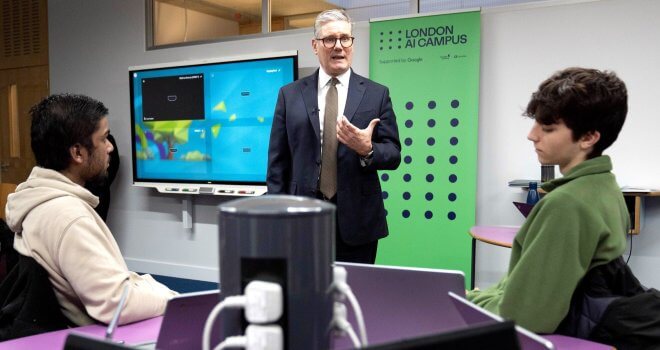How To Make Big Personal Or Business Changes In Four Stages

Project Management is all about change. But as project managers how good are we at making the most of changes at work or bringing empowering change into our personal lives?
Take one example: I joined my local Toastmasters speakers club to get over my fear of presenting to the project teams I was leading. Over time, I got better at public speaking, sharing stories and running workshops.
The magic ingredient in creating confident speakers turned out to be giving and receiving lots of feedback. We improve by going through cycle after cycle of observing, feeding back and trying out.
When I asked myself “what next in life and work?” one possibility was undertaking postgraduate research. However, I feared miserable years of being stuck at a desk, just reading and writing alone. Yuk.
I was delighted to find out about a kind of practitioner based learning which we can all do: Action Research. This involves going through cycles of experience, reflection and action. It involves working with other people and the kinds of feedback loops I had found so valuable.
My research started 18 months ago, and it is already having a big impact for me at work and in life. Here are the stages, with an example of one big personal change woven into the story.
Noticing your personal experience
Stage one is about noticing what is actually going on. We repeat patterns, playing out “rules” we’ve learned about how life works and how we are expected to be. One “rule” I’d learned was that a proper Irish girl’s dinner involved meat and two kinds of vegetable!
But a different kind of noticing was going on for me. I was now paying much more attention to nature on morning walks with my dog Betsy. Although feeling more connected, on its own, the noticing of nature wouldn’t have led me to make a big change. I needed to go deeper…
Diving deeper
Stage two means diving into our subconscious mind and pulling out what’s really going on in there: the unconscious patterns and rules. There are loads of ways to do this. Some people do painting and sculpture, some do poetry and stories, others do photography. Some people, including me, do a bit of all of these.
It seemed a bit weird. I am supposed to be doing serious research and instead I am playing with paint and poetry!! But you know what, it really made a difference. I shared stories like when I first visited an abattoir in my early 20s, I drew pictures and wrote poems about the nature I walked in with Betsy.
Then I found a surreal picture that switched realities: a giant lobster holding a human over a pot of boiling water. He was explaining to a fellow lobster that the human isn’t screaming, it’s just the noise it makes when it plunges in.
That picture was the tipping point that brought all of that reflecting and going deeper together. I felt really, really uncomfortable about using animals for food anymore and I decided to try out not eating meat or fish for a while.
Exploring concepts and ideas
After decades of meat eating experimenting with vegetarianism was a big change. I imagine I wouldn’t have lasted long if I hadn’t engaged in stage three. This is about exploring ideas and going beyond the “rules” and “facts” we take for granted.
I explored concepts and ideas from different perspectives. This allowed me to see what other people had to say about nature, how we often separate our bodies and minds, how we absorb expectations about how to feed our bodies and how to appear. I discussed it with other people, some thought I was mad, some were very happy with my choice.
Exploring others’ ideas allowed me to understand and develop my own. I became clearer about what I stood for, what was important to me and how I might keep the change alive.
Embedding change
This lead to a more confident way of being with food: I no longer felt obliged to eat meat and fish out of habit. I could handle other people’s responses to my choice.
There have been a few times when I have been really tempted to buy a nice big steak. But I focus on what I’ve experienced, felt and thought in this process, and pick something vegetarian.
These stages for change are one that anyone can use. Pay attention to what’s going on around you, find ways of going deeper into what it means for you, and explore the ideas behind it all so you can be clearer on what’s possible and what’s important to you.
Used together the steps can help you make lasting change both in your projects and in your personal lives.
Jean Gamester is from Toastmasters International.




